A new collaborative project by the UK government and car industry has been launched this month to help ease adoption of autonomous vehicles in British cities.
Servcity is run by Nissan, Connected Places Catapult, TRL, Hitachi, SBD and the University of Nottingham with the aim of reducing barriers to self-driving cars through “a combination of test simulation, end-user experience research and real-world trials”.
The project is jointly funded by industry and the government’s £100 million Intelligent Mobility fund. Servcity, which will run for the two and half years, focuses on three main areas - technology, people and scalability - to “ensure the user experience is as intuitive, inclusive and engaging as possible”.
Under the technology banner, Servcity is investigating how to help autonomous cars drive safely in built-up areas and the role of infrastructure.
The question of how to improve people’s attitudes to autonomous cars and make them user-friendly is the focus of Servcity’s people arm.
Finally, the project will research scalability, identifying areas where demand for autonomous mobility services is highest and working out how to scale them.
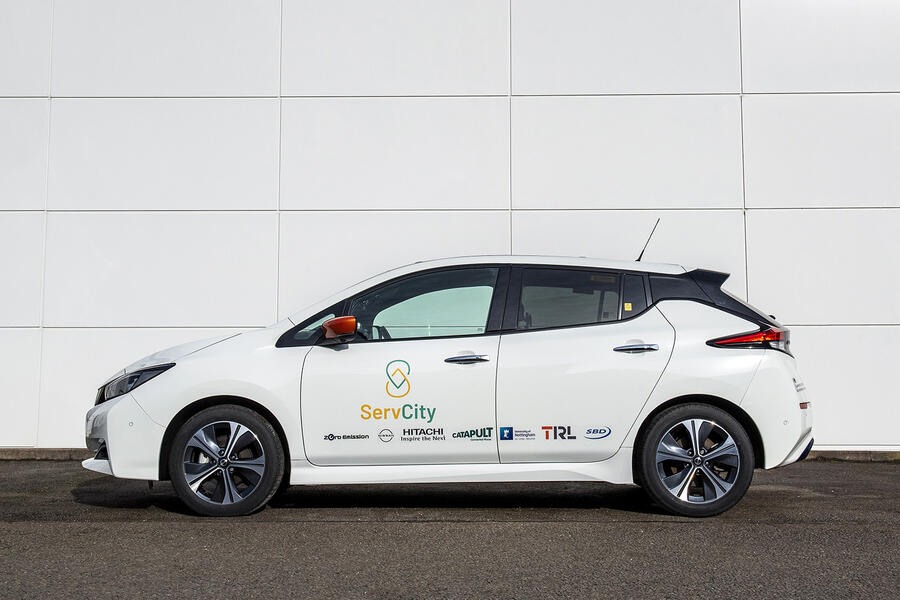
Servcity will use an autonomous Nissan Leaf electric car as its test vehicle, building on expertise gained from two previous projects - Human Drive and Grand Drive - that used the same car earlier this year.
Completed in February, Human Drive focused on self-driving cars’ abilities to navigate countryside and motorway lanes, overcoming obstacles such as roundabouts and high-speed country lanes with no markings.
The Grand Drive explored autonomous cars’ suitability for long-distance travel, deploying a self-driving Leaf 230 miles from Nissan’s technical centre in Cranfield, Bedfordshire to its factory in Sunderland, breaking the record for the longest single journey achieved by a self-driving car in the UK.
Business and industry minister Nadhim Zahawi said: “If society is to enjoy the benefits of self-driving vehicles, we need to ensure the technology can safely master a complex and lively modern city, with all its obstacles.
"This project, backed by government funding, will not only help make autonomous vehicles more user-friendly but also give users confidence that they can respond quickly and safely and to all types of challenges they face on the roads.”
READ MORE
Autonomous Nissan Leaf: riding in Britain's self-driving trailblazer

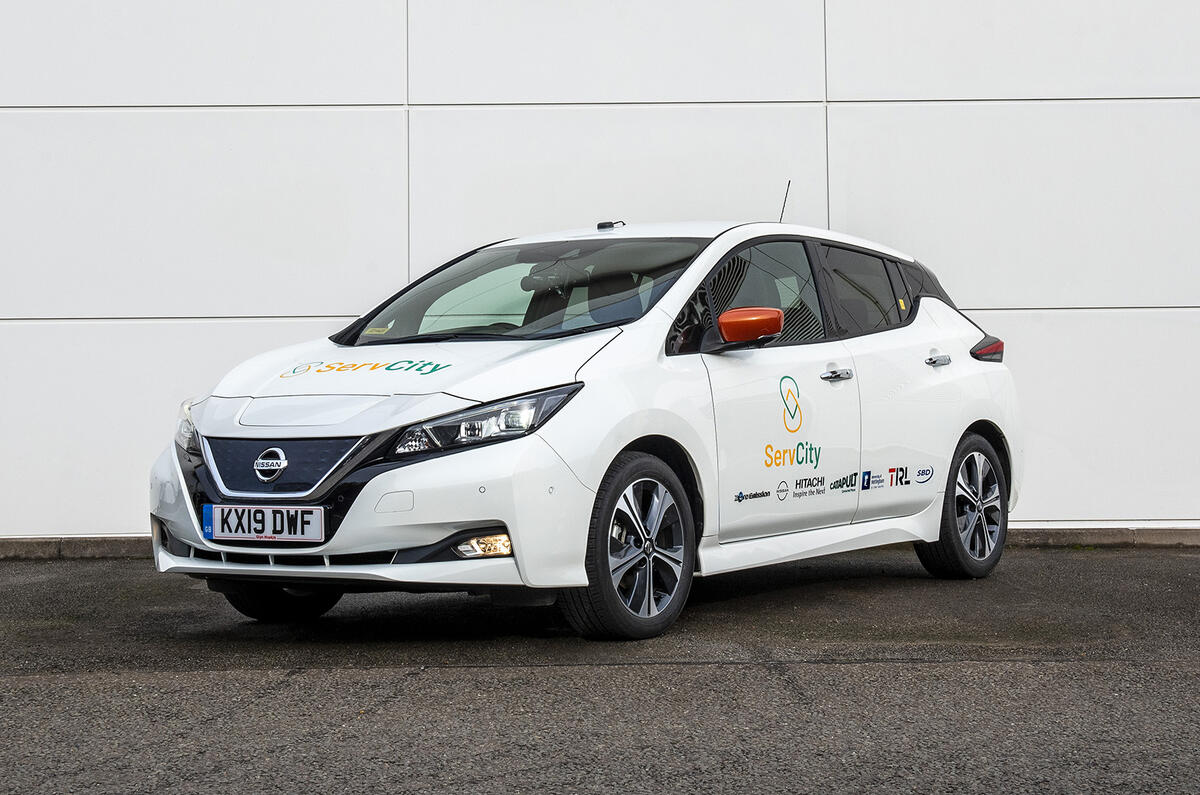
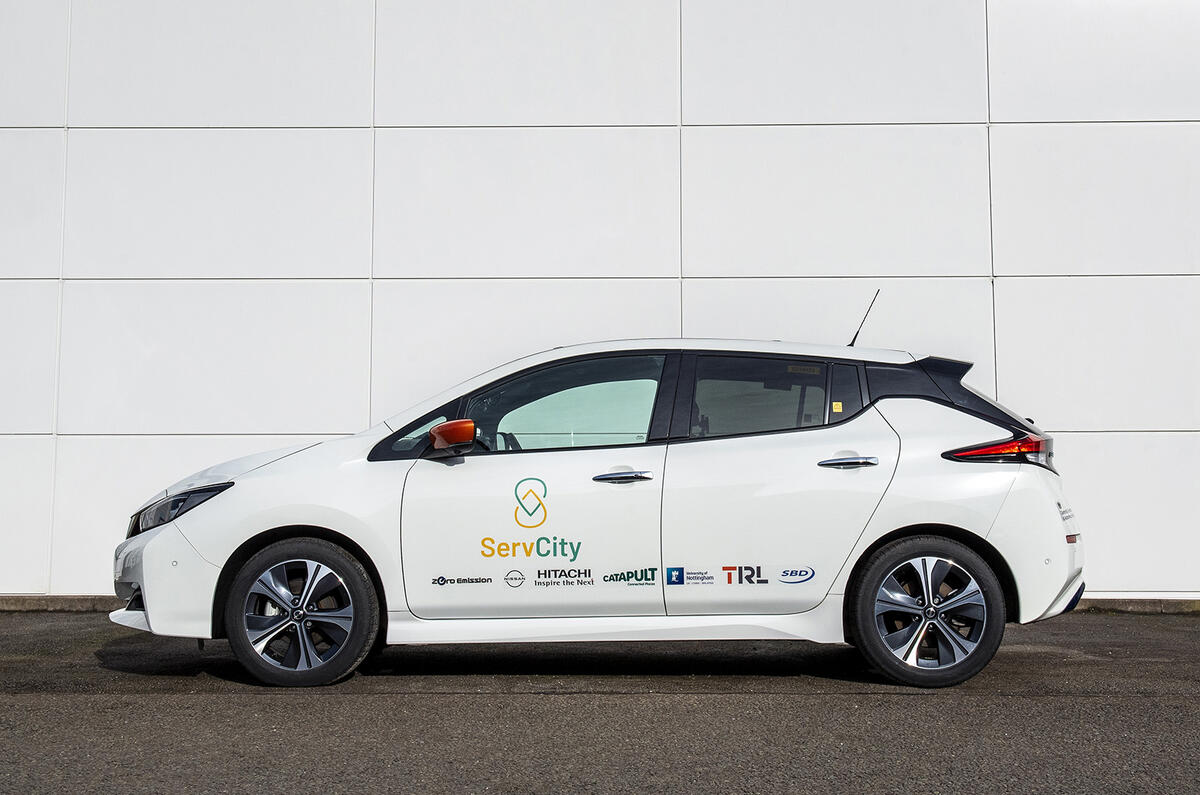
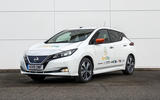
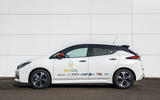


Join the debate
Add your comment
Who's responsible?
Self driving cars perfect ok...who's liable for any accidents or injuries that's what I want to know, so long as it's not going to be "me" and that any issues will be taken care of by the manufacturers of the technology that's fine bring it on, but I say this mainly from the point of view of a pedestrian not so much a driver as there is little chance that I will driving by the time it's implemented fully and little chance i'll be putting my life in the hands of a computer. Why not automate commercial aircraft there are a lot less variables than in on the roads and a more controlled environment and it's already monitored by radar and all manner of electronics, I suspect that passengers wouldn't want to fly on them. The US experimented with it years ago I am told, not certain if civillian or military but due to "participant resistance" it was dropped. Companies like Nissan were never seemed that interested in "driving" (SKYLINE, GTI-R etc accepted) so to them and people like Volvo it means sitting in a white goods/fridge as you go about your business which must a nice prospect for them and similarly mided companies.